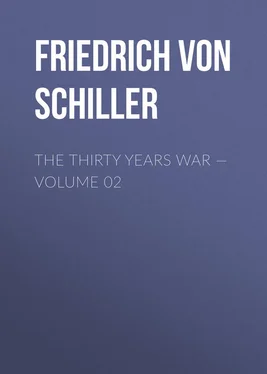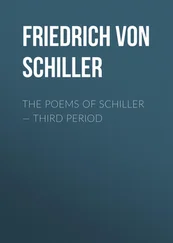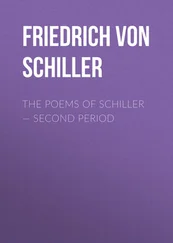Friedrich Schiller - The Thirty Years War — Volume 02
Здесь есть возможность читать онлайн «Friedrich Schiller - The Thirty Years War — Volume 02» — ознакомительный отрывок электронной книги совершенно бесплатно, а после прочтения отрывка купить полную версию. В некоторых случаях можно слушать аудио, скачать через торрент в формате fb2 и присутствует краткое содержание. Жанр: История, literature_18, foreign_antique, foreign_prose, на английском языке. Описание произведения, (предисловие) а так же отзывы посетителей доступны на портале библиотеки ЛибКат.
- Название:The Thirty Years War — Volume 02
- Автор:
- Жанр:
- Год:неизвестен
- ISBN:нет данных
- Рейтинг книги:3 / 5. Голосов: 1
-
Избранное:Добавить в избранное
- Отзывы:
-
Ваша оценка:
- 60
- 1
- 2
- 3
- 4
- 5
The Thirty Years War — Volume 02: краткое содержание, описание и аннотация
Предлагаем к чтению аннотацию, описание, краткое содержание или предисловие (зависит от того, что написал сам автор книги «The Thirty Years War — Volume 02»). Если вы не нашли необходимую информацию о книге — напишите в комментариях, мы постараемся отыскать её.
The Thirty Years War — Volume 02 — читать онлайн ознакомительный отрывок
Ниже представлен текст книги, разбитый по страницам. Система сохранения места последней прочитанной страницы, позволяет с удобством читать онлайн бесплатно книгу «The Thirty Years War — Volume 02», без необходимости каждый раз заново искать на чём Вы остановились. Поставьте закладку, и сможете в любой момент перейти на страницу, на которой закончили чтение.
Интервал:
Закладка:
Friedrich Schiller
The Thirty Years War — Volume 02
BOOK II
The resolution which Ferdinand now adopted, gave to the war a new direction, a new scene, and new actors. From a rebellion in Bohemia, and the chastisement of rebels, a war extended first to Germany, and afterwards to Europe. It is, therefore, necessary to take a general survey of the state of affairs both in Germany and the rest of Europe.
Unequally as the territory of Germany and the privileges of its members were divided among the Roman Catholics and the Protestants, neither party could hope to maintain itself against the encroachments of its adversary otherwise than by a prudent use of its peculiar advantages, and by a politic union among themselves. If the Roman Catholics were the more numerous party, and more favoured by the constitution of the empire, the Protestants, on the other hand, had the advantage of possessing a more compact and populous line of territories, valiant princes, a warlike nobility, numerous armies, flourishing free towns, the command of the sea, and even at the worst, certainty of support from Roman Catholic states. If the Catholics could arm Spain and Italy in their favour, the republics of Venice, Holland, and England, opened their treasures to the Protestants, while the states of the North and the formidable power of Turkey, stood ready to afford them prompt assistance. Brandenburg, Saxony, and the Palatinate, opposed three Protestant to three Ecclesiastical votes in the Electoral College; while to the Elector of Bohemia, as to the Archduke of Austria, the possession of the Imperial dignity was an important check, if the Protestants properly availed themselves of it. The sword of the Union might keep within its sheath the sword of the League; or if matters actually came to a war, might make the issue of it doubtful. But, unfortunately, private interests dissolved the band of union which should have held together the Protestant members of the empire. This critical conjuncture found none but second-rate actors on the political stage, and the decisive moment was neglected because the courageous were deficient in power, and the powerful in sagacity, courage, and resolution.
The Elector of Saxony was placed at the head of the German Protestants, by the services of his ancestor Maurice, by the extent of his territories, and by the influence of his electoral vote. Upon the resolution he might adopt, the fate of the contending parties seemed to depend; and John George was not insensible to the advantages which this important situation procured him. Equally valuable as an ally, both to the Emperor and to the Protestant Union, he cautiously avoided committing himself to either party; neither trusting himself by any irrevocable declaration entirely to the gratitude of the Emperor, nor renouncing the advantages which were to be gained from his fears. Uninfected by the contagion of religious and romantic enthusiasm which hurried sovereign after sovereign to risk both crown and life on the hazard of war, John George aspired to the more solid renown of improving and advancing the interests of his territories. His cotemporaries accused him of forsaking the Protestant cause in the very midst of the storm; of preferring the aggrandizement of his house to the emancipation of his country; of exposing the whole Evangelical or Lutheran church of Germany to ruin, rather than raise an arm in defence of the Reformed or Calvinists; of injuring the common cause by his suspicious friendship more seriously than the open enmity of its avowed opponents. But it would have been well if his accusers had imitated the wise policy of the Elector. If, despite of the prudent policy, the Saxons, like all others, groaned at the cruelties which marked the Emperor's progress; if all Germany was a witness how Ferdinand deceived his confederates and trifled with his engagements; if even the Elector himself at last perceived this — the more shame to the Emperor who could so basely betray such implicit confidence.
If an excessive reliance on the Emperor, and the hope of enlarging his territories, tied the hands of the Elector of Saxony, the weak George William, Elector of Brandenburg, was still more shamefully fettered by fear of Austria, and of the loss of his dominions. What was made a reproach against these princes would have preserved to the Elector Palatine his fame and his kingdom. A rash confidence in his untried strength, the influence of French counsels, and the temptation of a crown, had seduced that unfortunate prince into an enterprise for which he had neither adequate genius nor political capacity. The partition of his territories among discordant princes, enfeebled the Palatinate, which, united, might have made a longer resistance.
This partition of territory was equally injurious to the House of Hesse, in which, between Darmstadt and Cassel, religious dissensions had occasioned a fatal division. The line of Darmstadt, adhering to the Confession of Augsburg, had placed itself under the Emperor's protection, who favoured it at the expense of the Calvinists of Cassel. While his religious confederates were shedding their blood for their faith and their liberties, the Landgrave of Darmstadt was won over by the Emperor's gold. But William of Cassel, every way worthy of his ancestor who, a century before, had defended the freedom of Germany against the formidable Charles V., espoused the cause of danger and of honour. Superior to that pusillanimity which made far more powerful princes bow before Ferdinand's might, the Landgrave William was the first to join the hero of Sweden, and to set an example to the princes of Germany which all had hesitated to begin. The boldness of his resolve was equalled by the steadfastness of his perseverance and the valour of his exploits. He placed himself with unshrinking resolution before his bleeding country, and boldly confronted the fearful enemy, whose hands were still reeking from the carnage of Magdeburg.
The Landgrave William deserves to descend to immortality with the heroic race of Ernest. Thy day of vengeance was long delayed, unfortunate John Frederick! Noble! never-to-be-forgotten prince! Slowly but brightly it broke. Thy times returned, and thy heroic spirit descended on thy grandson. An intrepid race of princes issues from the Thuringian forests, to shame, by immortal deeds, the unjust sentence which robbed thee of the electoral crown — to avenge thy offended shade by heaps of bloody sacrifice. The sentence of the conqueror could deprive thee of thy territories, but not that spirit of patriotism which staked them, nor that chivalrous courage which, a century afterwards, was destined to shake the throne of his descendant. Thy vengeance and that of Germany whetted the sacred sword, and one heroic hand after the other wielded the irresistible steel. As men, they achieved what as sovereigns they dared not undertake; they met in a glorious cause as the valiant soldiers of liberty. Too weak in territory to attack the enemy with their own forces, they directed foreign artillery against them, and led foreign banners to victory.
The liberties of Germany, abandoned by the more powerful states, who, however, enjoyed most of the prosperity accruing from them, were defended by a few princes for whom they were almost without value. The possession of territories and dignities deadened courage; the want of both made heroes. While Saxony, Brandenburg, and the rest drew back in terror, Anhalt, Mansfeld, the Prince of Weimar and others were shedding their blood in the field. The Dukes of Pomerania, Mecklenburg, Luneburg, and Wirtemberg, and the free cities of Upper Germany, to whom the name of EMPEROR was of course a formidable one, anxiously avoided a contest with such an opponent, and crouched murmuring beneath his mighty arm.
Austria and Roman Catholic Germany possessed in Maximilian of Bavaria a champion as prudent as he was powerful. Adhering throughout the war to one fixed plan, never divided between his religion and his political interests; not the slavish dependent of Austria, who was labouring for HIS advancement, and trembled before her powerful protector, Maximilian earned the territories and dignities that rewarded his exertions. The other Roman Catholic states, which were chiefly Ecclesiastical, too unwarlike to resist the multitudes whom the prosperity of their territories allured, became the victims of the war one after another, and were contented to persecute in the cabinet and in the pulpit, the enemy whom they could not openly oppose in the field. All of them, slaves either to Austria or Bavaria, sunk into insignificance by the side of Maximilian; in his hand alone their united power could be rendered available.
Читать дальшеИнтервал:
Закладка:
Похожие книги на «The Thirty Years War — Volume 02»
Представляем Вашему вниманию похожие книги на «The Thirty Years War — Volume 02» списком для выбора. Мы отобрали схожую по названию и смыслу литературу в надежде предоставить читателям больше вариантов отыскать новые, интересные, ещё непрочитанные произведения.
Обсуждение, отзывы о книге «The Thirty Years War — Volume 02» и просто собственные мнения читателей. Оставьте ваши комментарии, напишите, что Вы думаете о произведении, его смысле или главных героях. Укажите что конкретно понравилось, а что нет, и почему Вы так считаете.











